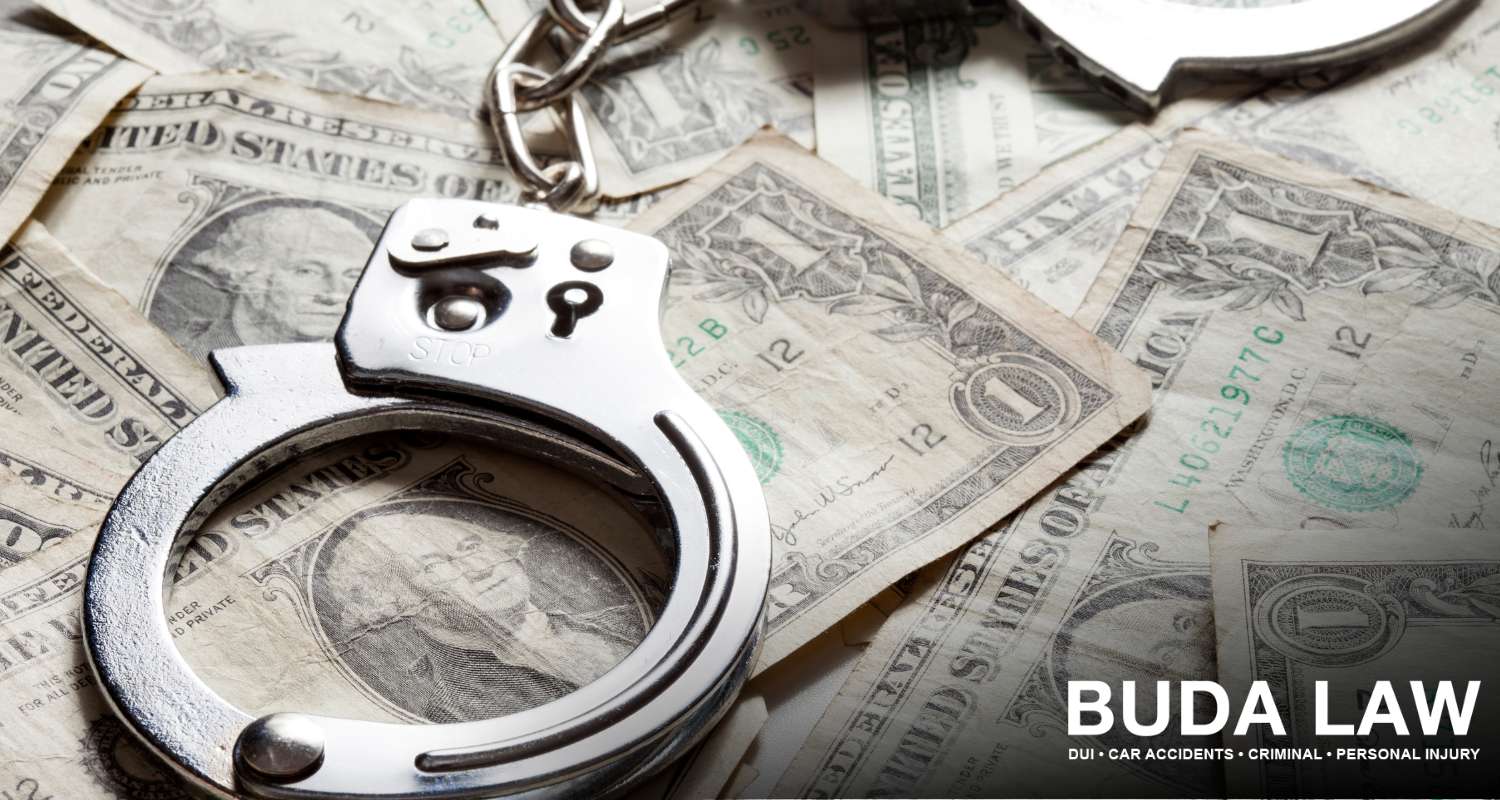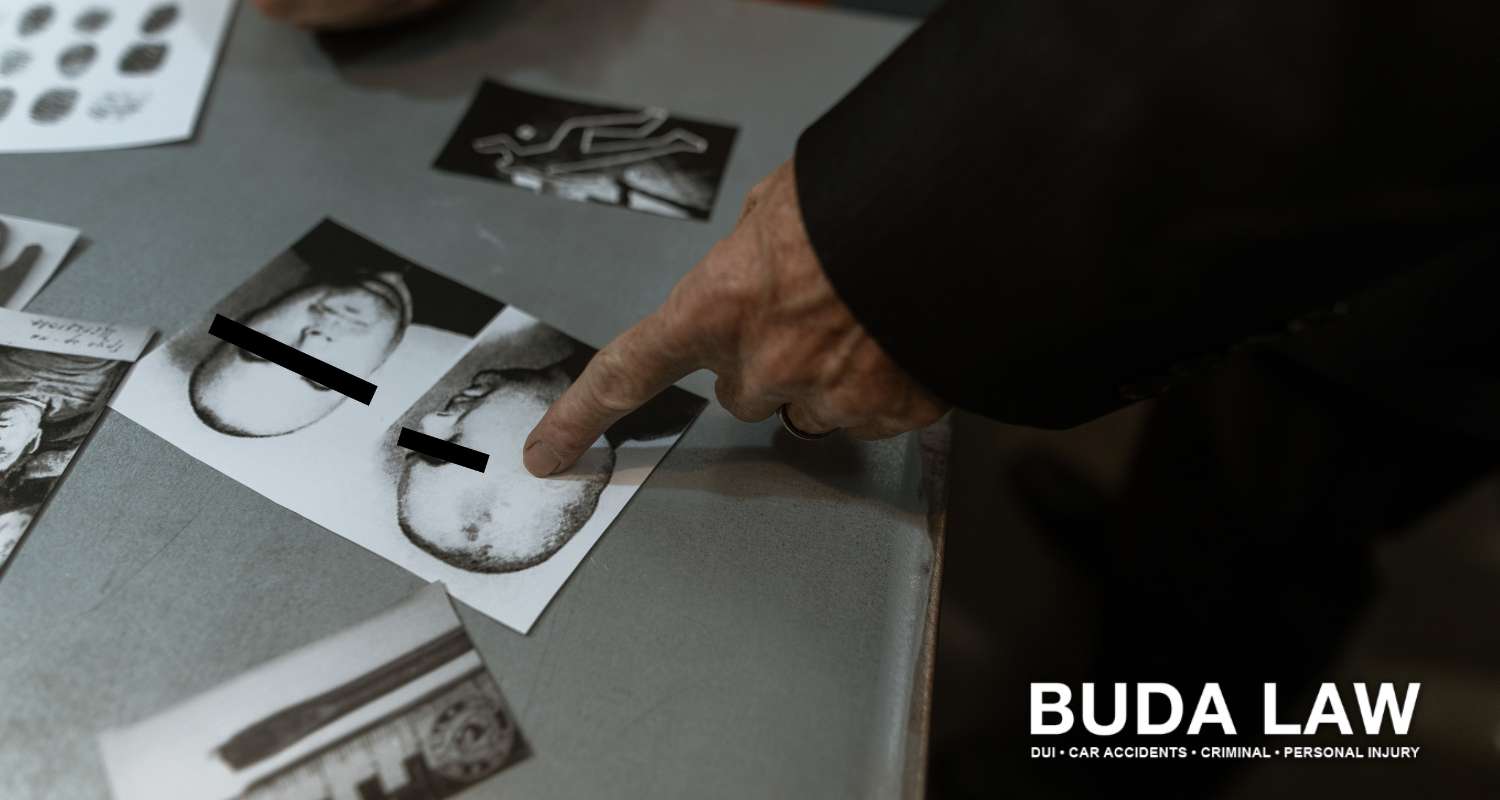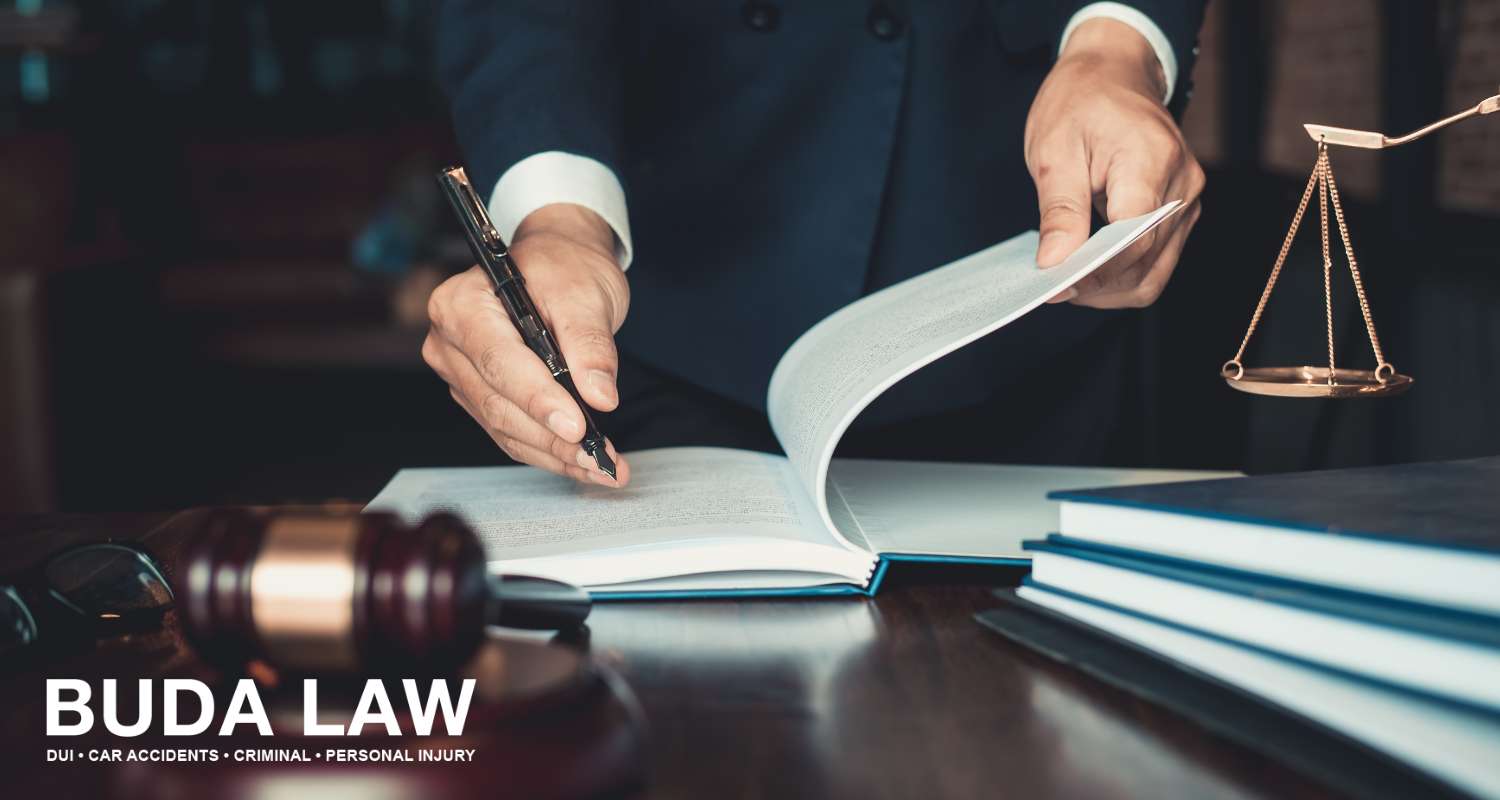Aggressively Fighting for the Best Possible Outcome
TAMPA RICO LAWYER
Work with an Experienced Former Prosecutor
Under the Racketeer Influenced and Corrupt Organizations Act (RICO), individuals and organizations engaged in a pattern of criminal activity can face severe penalties, including long prison sentences, substantial fines, and lasting reputation damage.
Tampa RICO lawyer Andrew Buda has experience defending clients against RICO charges at both the state and federal levels. Whether you’re facing charges related to racketeering, fraud, or other crimes, our Tampa criminal lawyers are committed to providing a strong defense to protect your rights and minimize the impact of these serious allegations.

If you’ve been arrested or are under investigation for RICO offenses, contact Buda Law at (813) 322-2832 to schedule a free consultation today.
What is the RICO Act?
The Racketeer Influenced and Corrupt Organizations (RICO) Act is a federal law passed in 1970 to combat organized crime. Originally designed to dismantle criminal organizations like the Mafia, the RICO Act allows prosecutors to charge individuals and groups involved in a pattern of illegal activities as part of a criminal enterprise. This includes offenses such as drug trafficking, money laundering, identity theft, extortion, illegal gambling, fraud, and bribery.
Under RICO, it’s not just those directly committing the crimes who can be held accountable, but also individuals involved in running or profiting from the criminal enterprise. As such, RICO charges can be applied to individuals and organizations, making it one of the most effective tools federal prosecutors use to target widespread criminal activity.

Common Types of RICO Crimes
RICO can be applied to a wide range of criminal activities, many involving illegal enterprises that operate over time and across multiple criminal acts. The law targets individuals and organizations engaged in patterns of racketeering, which means they commit repeated offenses connected to a larger criminal operation.
Below are some of the most common types of RICO offenses:
- Drug Trafficking – The illegal production, distribution, or sale of controlled substances. Drug trafficking is often tied to large-scale criminal operations that manage and profit from the drug trade.
- Money Laundering – The process of concealing the origins of illegally gained money, usually by moving it through a series of transactions to make it appear as legitimate income.
- Fraud – Fraudulent activities, including securities fraud, bank fraud, and insurance fraud, where individuals or organizations deceive others for financial gain.
- Extortion – The act of using threats or intimidation to obtain money, property, or services from others. This often involves the threat of harm or the use of force to manipulate victims.
- Illegal Gambling – Operating or participating in gambling activities that are not legally permitted, such as underground betting rings or unlicensed casinos.
- Bribery and Corruption – Offering or accepting bribes to influence decisions or actions, particularly within business or government sectors, often leading to illegal favors or actions.
- Identity Theft – Stealing someone’s personal information to commit fraud or other crimes, often for financial gain.
These offenses, among others, can be prosecuted under the RICO Act if they are part of a broader criminal enterprise. Whether committed by a street gang, a corrupt organization, or an illegal business operation, RICO laws provide powerful tools for authorities to dismantle these criminal networks.
RICO Charges in Florida
In Florida, individuals can face both state and federal RICO charges, each carrying its own penalties and procedures. While federal RICO charges are brought by federal prosecutors and apply to crimes that span multiple states or involve interstate commerce, the Florida Racketeer Influenced and Corrupt Organization Act (FRICO) applies to criminal activities that occur within the state.
Florida’s RICO laws are similar to the federal statute but have separate provisions that address local criminal enterprises. The Florida RICO Act specifically targets organized crime and patterns of criminal behavior involving at least two predicate offenses, which can include acts like drug trafficking, fraud, extortion, or money laundering.
Under the Florida RICO Act, prosecutors can pursue criminal charges against individuals or organizations involved in ongoing criminal enterprises. The law is designed to disrupt local criminal activity by holding individuals accountable for their participation in a broader pattern of racketeering.
A key feature of Florida’s RICO laws is that they apply not only to traditional organized crime groups, such as street gangs or drug cartels, but also to businesses or individuals involved in repeated criminal acts. For example, an individual involved in running an illegal gambling operation or a group using intimidation or fraud to control local businesses could be charged under Florida’s RICO statute. Local criminal organizations, like gangs involved in distributing illegal drugs or human trafficking rings, are also frequently targeted under FRICO charges.
What is the Minimum Sentence for a RICO Charge in Florida?
Under Florida law, RICO offenses do not typically come with a minimum sentence. Instead, these offenses are often prosecuted as first-degree felonies in Florida, which may entail a maximum of 30 years in prison.
Penalties can increase significantly based on the circumstances of the case, such as the nature of the underlying crimes, the defendant’s prior criminal history, and whether the offense involved violence or financial harm to victims. In addition to imprisonment, those convicted of a RICO violation in Florida may face substantial fines, restitution to victims, and the forfeiture of assets tied to the criminal enterprise.
Because RICO charges often involve multiple offenses and significant legal consequences, a strong criminal defense attorney like Andrew Buda is critical to challenging these allegations and seeking a reduced sentence or dismissal of charges. If you or someone you love is facing a RICO charge in Florida, contact Buda Law to schedule a free consultation with our experienced Tampa racketeering lawyer today.
Florida RICO Statute of Limitations
The statute of limitations for RICO charges in Florida is governed by the statute of limitations for the underlying criminal offenses involved in the racketeering activity. Generally, the statute of limitations for most felony charges in Florida is five years from the date the crime was committed.
In cases where the RICO violation involves a pattern of criminal activity over time, the statute of limitations begins running from the last criminal act rather than from the first. This means that even if some of the crimes occurred several years ago, a defendant could still be charged with a RICO violation as long as one of the criminal acts within the pattern occurred within the applicable statute of limitations period.

Federal RICO Charges
Federal RICO charges are governed by 18 U.S.C. § 1961–1968, a set of statutes enacted to combat organized crime operating across state lines or involving federal jurisdictions. These laws allow federal prosecutors to target individuals and organizations engaged in a pattern of racketeering activity, such as drug trafficking, money laundering, extortion, fraud, or illegal gambling, among other offenses.
The federal RICO statutes not only criminalize participation in a criminal enterprise but also allow authorities to pursue asset forfeiture and substantial financial penalties against those convicted, effectively dismantling large-scale criminal networks.
Federal RICO charges are often reserved for cases involving cross-state criminal enterprises, extensive criminal networks, or crimes investigated by federal agencies. Examples include interstate drug trafficking cartels, human trafficking rings, or nationwide schemes involving securities fraud or identity theft.
Federal prosecutors use RICO statutes to connect individual acts to a larger criminal organization, holding leaders and participants accountable for the broader enterprise’s actions. Because federal RICO cases are prosecuted in federal court and involve severe penalties, defending against these charges requires an in-depth understanding of federal law and the complex nature of the allegations. As both a state and federal criminal defense lawyer in Tampa, Andrew Buda is equipped to defend clients facing either level of RICO charges.
Penalties for Federal RICO Convictions
Penalties for federal RICO convictions are among the harshest in the legal system, reflecting the seriousness of racketeering and organized crime. Under federal law, individuals convicted of a RICO violation can face up to 20 years in prison for each count. In cases involving more severe offenses like murder, they may even face life imprisonment.
In addition to prison time, federal RICO convictions result in severe financial penalties, including up to $250,000 or twice the amount of financial gain or loss caused by the criminal enterprise, whichever is greater.
Convicted individuals must also forfeit assets gained through racketeering, including money, property, and other items tied to the criminal enterprise.
Elements Required to Prove a RICO Violation
To secure a conviction under the RICO Act, prosecutors must meet specific legal requirements that demonstrate the defendant’s involvement in a pattern of organized criminal activity. These elements are crucial to linking an individual to a larger criminal enterprise rather than isolated or unrelated acts.
Below are the key elements that must be proven in a RICO case:
- Pattern of Racketeering Activity: Prosecutors must establish a pattern of criminal behavior, generally requiring at least two acts of racketeering within ten years. These acts must be connected to the larger criminal enterprise and demonstrate ongoing or repeated illegal activities rather than one illegal act.
- Association with a Criminal Enterprise: The defendant must be shown to have an association with a group, organization, or business that has a shared purpose or goal. This element ties individuals to the enterprise, whether they are leaders, active participants, or otherwise contributing to its illegal activities.
- Participation in the Enterprise’s Affairs: The prosecution must prove that the defendant actively participated in or exercised control over the enterprise’s illegal operations. This can include planning, executing, or influencing criminal acts that further the organization’s goals.
These elements form the foundation of a RICO prosecution and are designed to target individuals who play an integral role in criminal enterprises, regardless of their specific level of involvement.

Why You Need an Experienced Florida RICO Defense Lawyer
RICO cases are among the most challenging criminal charges to defend. They often involve intricate webs of evidence such as financial records, electronic communications, surveillance footage, and the testimony of cooperating witnesses. Racketeering charges also usually result from extensive investigations by state or federal agencies, making them difficult to untangle without a deep understanding of state and federal RICO laws. Jurisdictional issues can add another layer of complexity, especially when allegations cross state lines or involve multiple agencies.
An experienced Tampa RICO attorney like Andrew Buda is essential in addressing these challenges. With experience in defending RICO charges and similar federal and white-collar crimes, Andrew Buda knows how to scrutinize evidence, challenge weak links in the prosecution’s case, and counter the intricate strategies often employed by prosecutors.
Whether facing charges under Florida’s state RICO statutes or federal RICO laws, having a skilled criminal defense attorney who understands how to build a strong defense can make a significant difference in protecting your rights and future.
How Tampa RICO Lawyer Andrew Buda Can Defend You in a RICO Case
As a seasoned Tampa RICO lawyer, Andrew Buda takes a meticulous approach to defending clients facing RICO charges. He begins by thoroughly analyzing every piece of evidence, including financial records, communications, surveillance, and witness statements, to identify prosecutors’ inconsistencies, errors, or overreach.
Buda understands the importance of scrutinizing the prosecution’s case to uncover weaknesses that can be used to challenge the charges. His experience also extends to negotiating with prosecutors, working to reduce or dismiss charges when possible by presenting compelling legal arguments or demonstrating the lack of sufficient evidence.
If a case proceeds to trial, Andrew Buda is prepared to provide an aggressive defense in court, leveraging his extensive knowledge of RICO laws combined with his commitment to securing the best possible outcome for each of his clients. Whether fighting to have charges dropped or advocating for a not guilty verdict at trial, Attorney Buda and his legal team are here to provide a strategic and firm defense tailored to the unique circumstances of your case.

Contact the Tampa, FL Criminal Defense Attorneys at Buda Law for Aggressive Defense Against Your RICO Charges
If you or a loved one is facing RICO charges, time is of the essence. These cases often involve severe consequences and require the knowledge and skill of experienced RICO attorneys who understand the intricacies of RICO laws in both state and federal courts. Without the right legal representation, you risk facing life-altering penalties, including hefty fines and significant prison time, if you’re found guilty.
At Buda Law, Tampa RICO lawyer Andrew Buda leverages years of experience– both as a former prosecutor and a criminal defense attorney – to craft aggressive and effective defense strategies. Whether your case involves allegations of white collar crime, organized criminal activity, or other offenses under RICO statutes, Andrew Buda is committed to fighting tirelessly on your behalf. Serving Pinellas and Hillsborough County, he brings a deep understanding of these serious charges and a proven ability to protect his client’s rights.
Don’t wait to get the legal advice and aggressive defense you need. Call our Tampa law firm today at (813) 322-2832 or reach out online to schedule your free consultation. Together, we will fight to protect your future, your freedom, and your reputation.
CASE RESULTS
Get the Toughness of a Trial Attorney
START BUILDING YOUR CASE
Schedule a Free Consultation
WHAT MAKES OUR DEFENSE SO EFFECTIVE?
- Former State Prosecutor
- Highly Responsive & Accessible
- Result-Oriented Advocacy
- We Prepare Every Case as if it's Going to Trial
- Personal Representation Centered Around You
- Exceptional Negotiator
